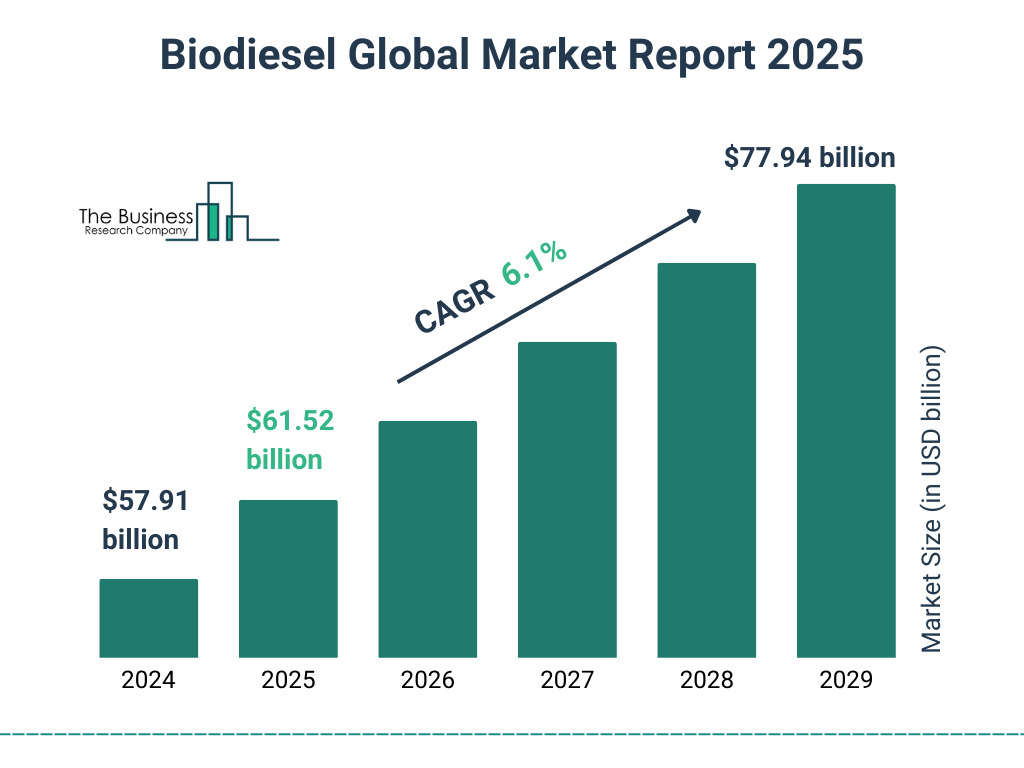Introduction: The Role of Biodiesel in Renewable Energy
Biodiesel is one of the fastest-growing renewable fuels worldwide. Produced from vegetable oils, animal fats, and agricultural residues, biodiesel serves as a sustainable alternative to fossil diesel.
Its key advantages include lower greenhouse gas emissions, compatibility with existing diesel engines, and biodegradability—all of which drive its increasing global demand.
Current Market Overview (2024)
In 2024, the global biodiesel market reached a value of $57.91 billion. This highlights biodiesel’s growing share within the renewable energy market, even as fossil fuels continue to dominate overall energy consumption.
Future Outlook (2025–2029)
The biodiesel market is expected to grow at a compound annual growth rate (CAGR) of 6.1%. Market value is projected to rise from $61.52 billion in 2025 to over $77.94 billion by 2029.
This growth is fueled by rising demand for clean fuels, advancements in production technologies, and government incentives supporting renewable energy adoption.
Key Growth Drivers
- Environmental policies: Stronger global regulations to cut carbon emissions.
- Rising crude oil prices: Increasing economic appeal of biodiesel.
- Technological innovation: Cost reductions and improved fuel quality.
- Public awareness: Industries and consumers shifting toward green energy
Challenges and Barriers
- Higher production costs compared to conventional diesel.
- Food vs. fuel debate regarding agricultural use.
- Limited infrastructure in some regions for large-scale distribution.
- Policy uncertainty due to political and economic fluctuations.
Conclusion
With a projected CAGR of 6.1%, biodiesel is set to play a pivotal role in the global energy transition. Despite challenges, its importance as a sustainable, renewable fuel makes it a cornerstone in the fight against climate change and fossil fuel dependency.


Great article! It’s cool seeing platforms like big bunny slot cater specifically to the Philippine market with GCash & PayMaya. Easy access is key for new players, right? Seems like a fun, modern experience!